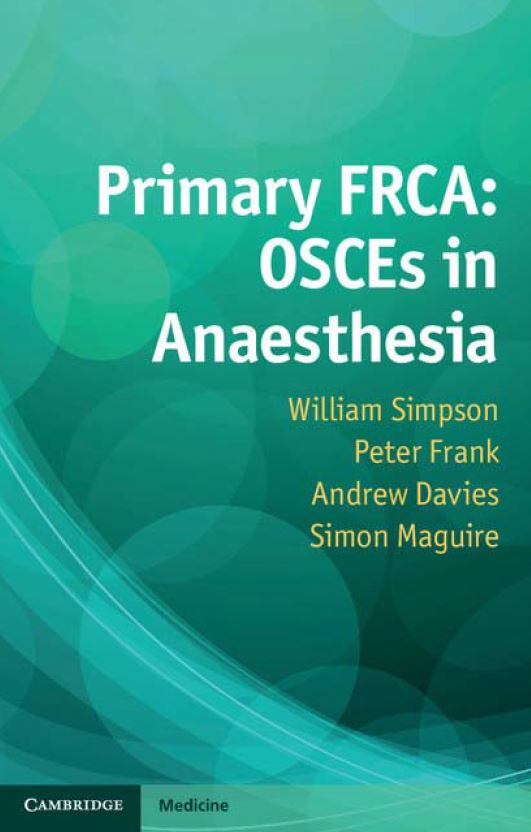Primary FRCA OSCEs in Anaesthesia PDF Free Download

The Primary FRCA is a formidable examination and not all trainees will leave the Royal College with the sweet taste of success. The syllabus is wide and deep while the three examination areas and techniques are also varied:
* A multiple choice questions (MCQ) paper incorporating 60 multiple true/false (MTF) as well as 30 single-best answer (SBA) questions The Structural Oral Examination (SOE).
This is divided into two parts:
SOE 1 – concerned with physiology and pharmacology
SOE 2 – examines knowledge of clinical anaesthesia, physics, clinical measurement, equipment and safety
* The Objective Structured Clinical Examination (OSCE) The aim of the OSCE examination is to test procedural and cognitive skills, which are underpinned by knowledge. The OSCE is composed of up to 18 stations, of which 16 are live and marked for the purposes of that sitting of the examination. The other stations are on trial and both examiners and examinees are unaware of which they are.
The stations have general themes, which are:
Resuscitation
Technical skills
Anatomy
History taking
Communication skills
Anaesthetic hazards
Interpretation of X-rays
Simulation (usually a critical incident)
Equipment (anaesthetic, monitoring, measurement)
Physical examination
Each station is marked out of 20 but the pass mark for each station may be different and is assigned by the Angoff method by the examiners. The pass mark for the OSCE examination is the sum of the pass marks for the individual stations. The MCQ must be tackled and passed before applying for the SOE/OSCE. These must be taken together at the first attempt. If one section is failed, then that section only needs to be retaken. There has been a general feeling among trainees that the SOE was the ‘difficult’ section while the OSCE would generally sort itself out with the knowledge gained from studying for the MCQ and SOE. It has become increasingly clear over the last few years that the OSCE section demands more respect and consideration. There are many trainees who have been successful in both the MCQ and SOE sections but failed the OSCE by some margin.
